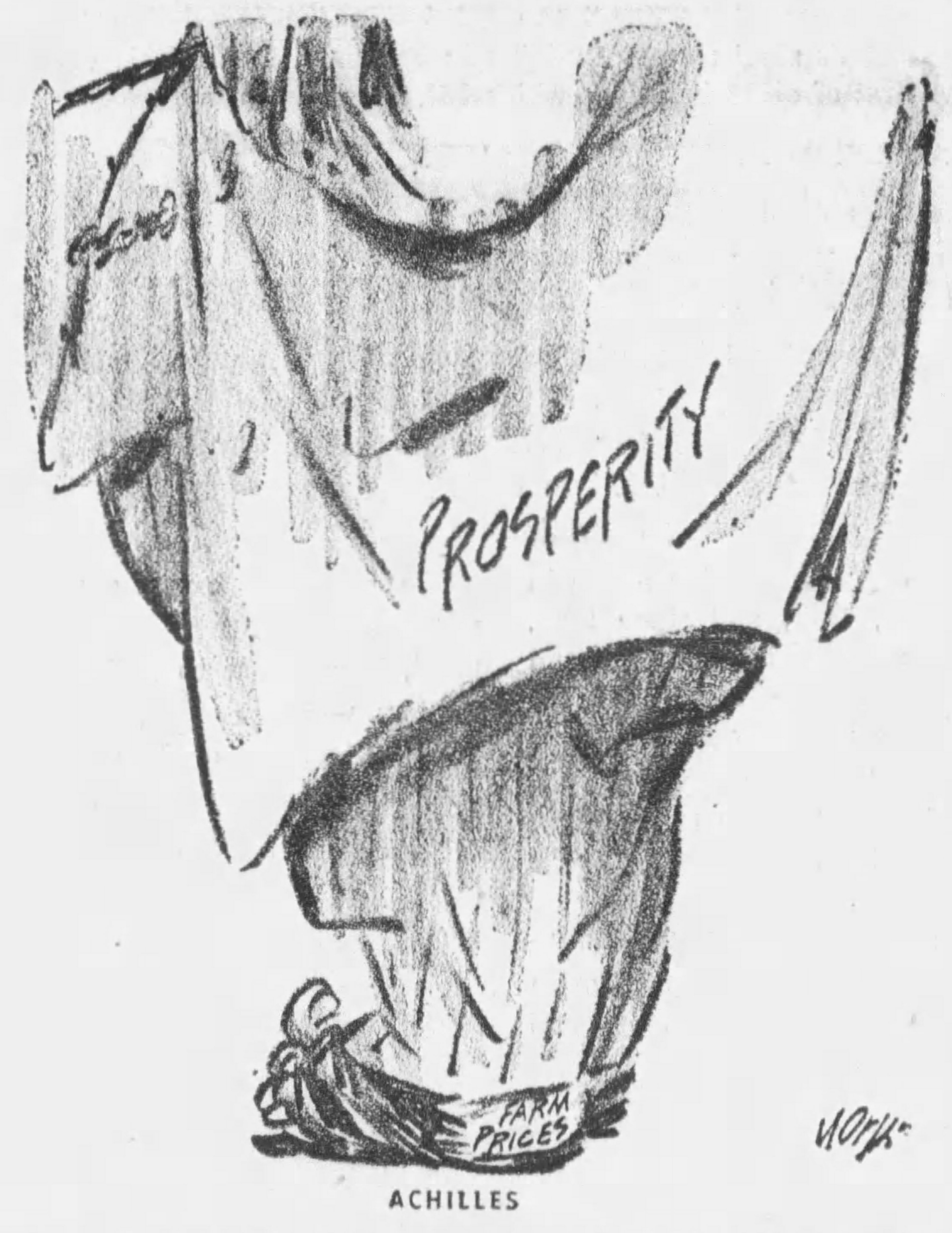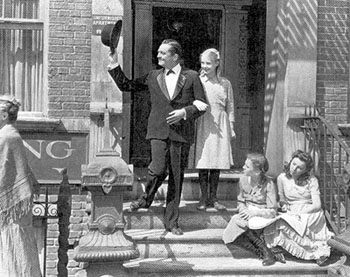|
Frank Conniff (journalist)
Frank Conniff ( ;(27 May 1971) ''The New York Times'' April 24, 1914 – May 25, 1971) was an American journalist and editor who won a Pulitzer Prize for International Reporting in 1956.''1972 Britannica Book of the Year'', 1972 (the book covers events of 1971), "Obituaries" article, page 521 Conniff was born in Danbury, Connecticut. His first newspaper job was as a copyboy with the '' Danbury News-Times''. He went to college at the University of Virginia, and after covering sports for one year in Danbury, joined Hearst Newspapers in New York. He was also a combat reporter during World War II in Africa and Europe, and covered the Korean War in 1950–51. In 1958 he became general director of the Hearst Headline Service, which provided news features, and contributed a Washington column. In New York he later wrote the "Conniff's Corner" column. While Hearst would introduce Conniff as their "house Democrat," Conniff also supported Joseph McCarthy, as Hearst Newspapers we ... [...More Info...] [...Related Items...] OR: [Wikipedia] [Google] [Baidu] |
Danbury, Connecticut
Danbury ( ) is a city in Fairfield County, Connecticut, United States, located approximately northeast of New York City. Danbury's population as of 2020 was 86,518. It is the third-largest city in Western Connecticut, and the seventh-largest city in Connecticut. Located within the heart of the Housatonic Valley region, the city is a historic commercial hub of western Connecticut, home to many commuters and summer residents from the New York metropolitan area and New England. Danbury is nicknamed the "Hat City", because it was once the center of the American hat industry, during the nineteenth and early twentieth centuries. The mineral danburite is named after Danbury, while the city itself is named for Danbury in Essex, England. Danbury is home to Danbury Hospital, Western Connecticut State University, Danbury Fair Mall, and Danbury Municipal Airport. History Danbury was settled by colonists in 1685, when eight families moved from what are now Norwalk and Stam ... [...More Info...] [...Related Items...] OR: [Wikipedia] [Google] [Baidu] |
1956 Pulitzer Prize
The following are the Pulitzer Prizes for 1956. Journalism awards *Public Service: ** '' Watsonville Register-Pajaronian'' for courageous exposure of corruption in public office, which led to the resignation of a district attorney and the conviction of one of his associates. * Local Reporting, Edition Time: ** Lee Hills of the ''Detroit Free Press'' for his aggressive, resourceful and comprehensive front page reporting of the United Auto Workers' negotiations with Ford and General Motors for a guaranteed annual wage. * Local Reporting, No Edition Time: ** Arthur Daley of ''The New York Times'', for his outstanding coverage and commentary on the world of sports in his daily column, ''Sports of the Times''. * National Reporting: ** Charles L. Bartlett of the '' Chattanooga Times'', for his original disclosures that led to the resignation of Harold E. Talbott as Secretary of the Air Force. * International Reporting: ** William Randolph Hearst, Jr., J. Kingsbury-Smith, and Fra ... [...More Info...] [...Related Items...] OR: [Wikipedia] [Google] [Baidu] |
American Male Journalists
American(s) may refer to: * American, something of, from, or related to the United States of America, commonly known as the "United States" or "America" ** Americans, citizens and nationals of the United States of America ** American ancestry, people who self-identify their ancestry as "American" ** American English, the set of varieties of the English language native to the United States ** Native Americans in the United States Native Americans (also called American Indians, First Americans, or Indigenous Americans) are the Indigenous peoples of the Americas, Indigenous peoples of the United States, particularly of the Contiguous United States, lower 48 states and A ..., indigenous peoples of the United States * American, something of, from, or related to the Americas, also known as "America" ** Indigenous peoples of the Americas * American (word), for analysis and history of the meanings in various contexts Organizations * American Airlines, U.S.-based airline headqua ... [...More Info...] [...Related Items...] OR: [Wikipedia] [Google] [Baidu] |
1971 Deaths
* The year 1971 had three partial solar eclipses (Solar eclipse of February 25, 1971, February 25, Solar eclipse of July 22, 1971, July 22 and Solar eclipse of August 20, 1971, August 20) and two total lunar eclipses (February 1971 lunar eclipse, February 10, and August 1971 lunar eclipse, August 6). The world population increased by 2.1% this year, the highest increase in history. Events January * January 2 – 1971 Ibrox disaster: During a crush, 66 people are killed and over 200 injured in Glasgow, Scotland. * January 5 – The first ever One Day International cricket match is played between Australia and England at the Melbourne Cricket Ground. * January 8 – Tupamaros kidnap Geoffrey Jackson, British ambassador to Uruguay, in Montevideo, keeping him captive until September. * January 9 – Uruguayan president Jorge Pacheco Areco demands emergency powers for 90 days due to kidnappings, and receives them the next day. * January 12 – The landmark United States televis ... [...More Info...] [...Related Items...] OR: [Wikipedia] [Google] [Baidu] |
1914 Births
This year saw the beginning of what became known as the First World War, after Archduke Franz Ferdinand of Austria, heir to the Austrian throne was Assassination of Archduke Franz Ferdinand, assassinated by Serbian nationalist Gavrilo Princip. It also saw the first airline to provide scheduled regular commercial passenger services with heavier-than-air aircraft, with the St. Petersburg–Tampa Airboat Line. Events January * January 1 – The St. Petersburg–Tampa Airboat Line in the United States starts services between St. Petersburg, Florida, St. Petersburg and Tampa, Florida, becoming the first airline to provide scheduled regular commercial passenger services with heavier-than-air aircraft, with Tony Jannus (the first federally-licensed pilot) conveying passengers in a Benoist XIV flying boat. Abram C. Pheil, mayor of St. Petersburg, is the first airline passenger, and over 3,000 people witness the first departure. * January 11 **The Sakurajima volcano in Japan ... [...More Info...] [...Related Items...] OR: [Wikipedia] [Google] [Baidu] |
Boris Karloff
William Henry Pratt (23 November 1887 – 2 February 1969), known professionally as Boris Karloff () and occasionally billed as Karloff the Uncanny, was a British actor. His portrayal of Frankenstein's monster in the horror film ''Frankenstein (1931 film), Frankenstein'' (1931), his 82nd film, established him as a horror icon, and he reprised the role for the sequels ''Bride of Frankenstein'' (1935) and ''Son of Frankenstein'' (1939). He also appeared as Imhotep (The Mummy), Imhotep in ''The Mummy (1932 film), The Mummy'' (1932), and voiced the Grinch in, as well as narrating, the animated television special of Dr. Seuss' ''How the Grinch Stole Christmas! (TV special), How the Grinch Stole Christmas!'' (1966), which won him a Grammy Award. Aside from his numerous film roles (174 films), Karloff acted in many live stage plays and appeared on dozens of radio and television programs as well. For his contribution to film and television, Karloff was awarded two stars on the Hollywo ... [...More Info...] [...Related Items...] OR: [Wikipedia] [Google] [Baidu] |
Deems Taylor
Joseph Deems Taylor (December 22, 1885 – July 3, 1966) was an American composer, radio commentator, music critic, and author. Nat Benchley, co-editor of ''The Lost Algonquin Roundtable'', referred to him as "the dean of American music." He was elected a member of the American Philosophical Society in 1934. Early life and family Deems Taylor was born in New York City to JoJo and Katherine Taylor. He attended Ethical Culture Elementary School, followed by New York University. Taylor married three times. His first wife was Jane Anderson (journalist), Jane Anderson. They were married in 1910, but divorced in 1918. In 1921, he married Mary Kennedy, who was an actress and a writer. They had a daughter, Joan Kennedy Taylor, in 1926, and divorced in 1934. He was involved romantically with soprano Colette D'Arville after his divorce. Taylor married a third and last time in 1945, to costume designer Lucille Watson-Little. They were divorced eight years later. Taylor died on July 3, 196 ... [...More Info...] [...Related Items...] OR: [Wikipedia] [Google] [Baidu] |
Peggy Ann Garner
Peggy Ann Garner (February 3, 1932 – October 16, 1984) was an American child actress. As a child actress, Garner had her first film role in 1938. At the 18th Academy Awards, Garner won the Academy Juvenile Award, recognizing her body of contributions to film in 1945, particularly in '' A Tree Grows in Brooklyn'' and '' Junior Miss''. Featured roles in such films as '' Black Widow'' (1954) did not help to establish her in mature film roles, although she progressed to theatrical work and she made acting appearances on television as an adult. In 1961, she starred with Richard Boone in the episode "Dream Girl" on ''Have Gun – Will Travel''. Early years Peggy Ann Garner was born on February 3, 1932, at Aultman Hospital in Canton, Ohio. She was the daughter of William H. Garner, an attorney, and Virginia Craig Garner; they were married in Toledo, Ohio on April 7, 1931. She was pushed by her mother into the limelight and entered in talent quests while still a child. Her pa ... [...More Info...] [...Related Items...] OR: [Wikipedia] [Google] [Baidu] |
Who Said That?
''Who Said That?'' is a 1948–55 NBC game show that ran on radio and television, in which a panel of celebrities attempted to determine the speaker of a quotation from recent news reports. Radio Robert Trout was the moderator when the radio version began on July 2, 1948. Panelists included H. V. Kaltenborn, Robert Ruark, Leland Stowe, and John Swayze. Peter Roberts was the announcer. Production Don Gillis was the director, with Fred and Dorothy Friendly as editors. The program was broadcast at 8:30 p.m. on Fridays, and it was sustaining. NBC planned to cancel the program in the fall of 1948, but it was continued "at the instance of the network's affiliates". The continuation was accompanied by a scheduling change as the show was moved to noon Eastern Time on Sundays. Critical response The trade publication ''Variety'' called the 1948 radio version "a refreshing departure from run-of-the-mill entertainment". It commended Trout's work as moderator, saying his ... [...More Info...] [...Related Items...] OR: [Wikipedia] [Google] [Baidu] |
Game Show
A game show (or gameshow) is a genre of broadcast viewing entertainment where contestants compete in a game for rewards. The shows are typically directed by a game show host, host, who explains the rules of the program as well as commentating and narrating where necessary. The history of the game shows dates back to the late 1930s when both radio and television game shows were broadcast. The genre became popular in the United States in the 1950s, becoming a regular feature of daytime television. On most game shows, contestants Quiz, answer questions or solve puzzles, and win prizes such as cash, trips and goods and services. History 1930s–1950s Game shows began to appear on radio and television in the late 1930s. The first television game show, ''Spelling Bee (game show), Spelling Bee'', as well as the first radio game show, ''Information Please'', were both broadcast in 1938; the first major success in the game show genre was ''Dr. I.Q.'', a radio quiz show that began in ... [...More Info...] [...Related Items...] OR: [Wikipedia] [Google] [Baidu] |





